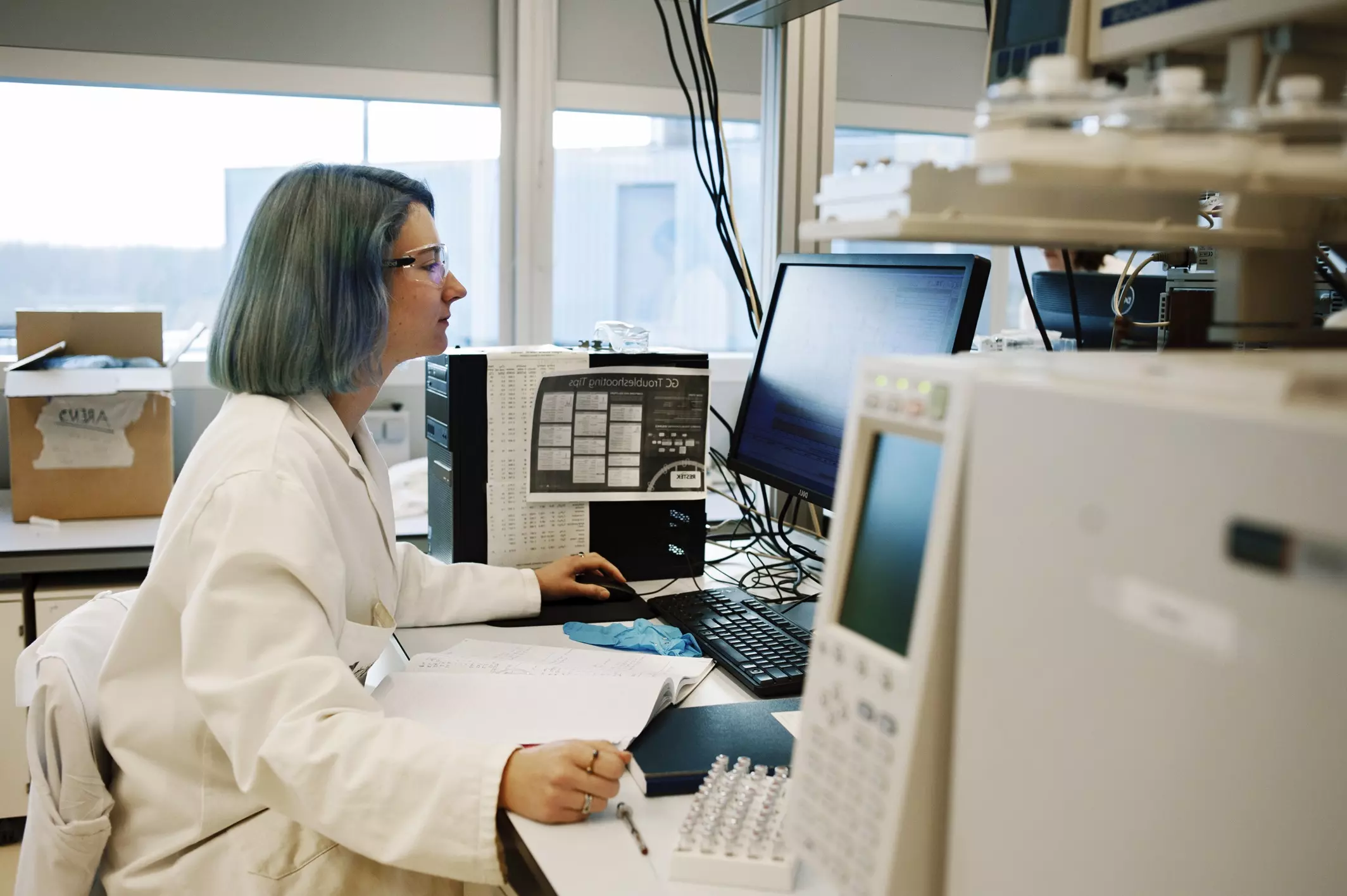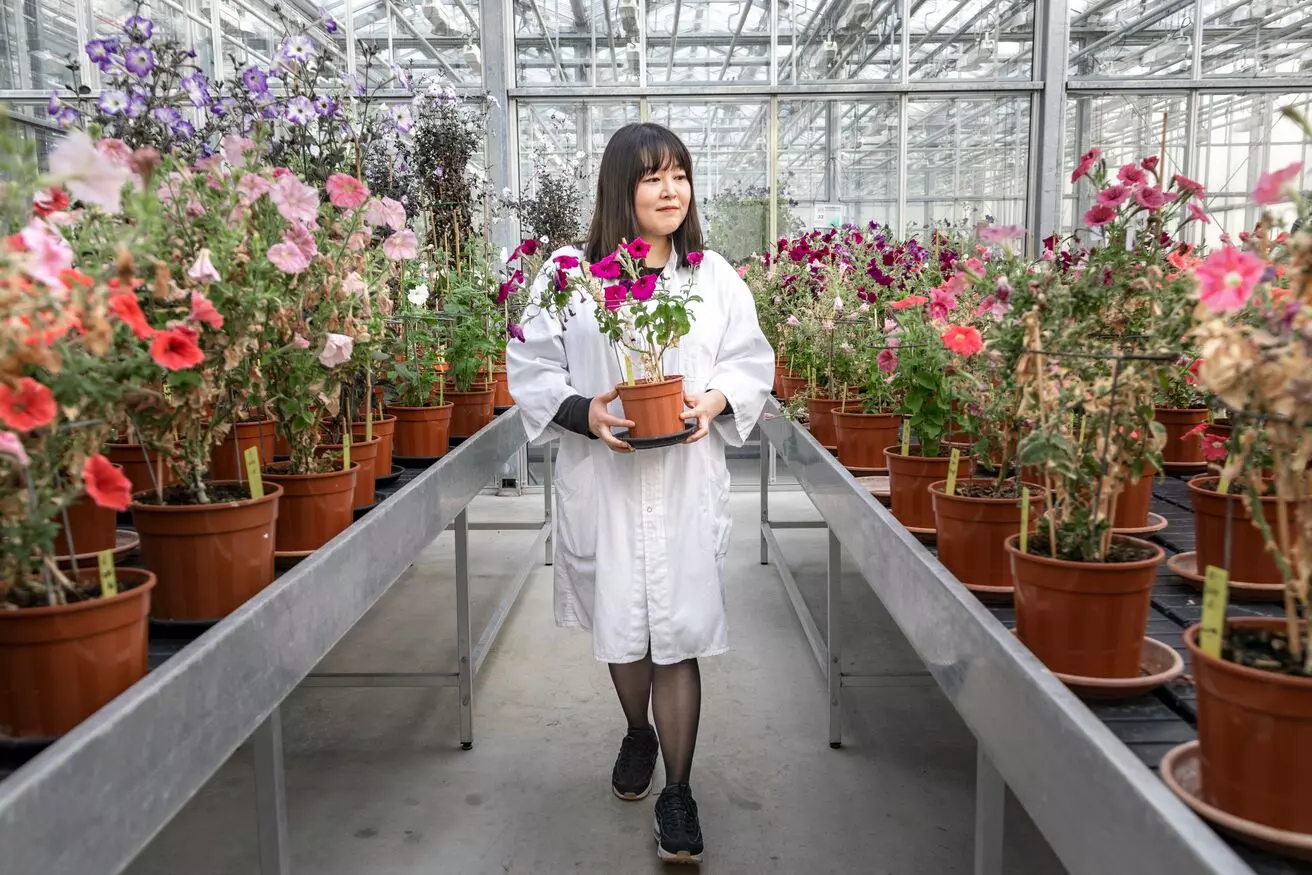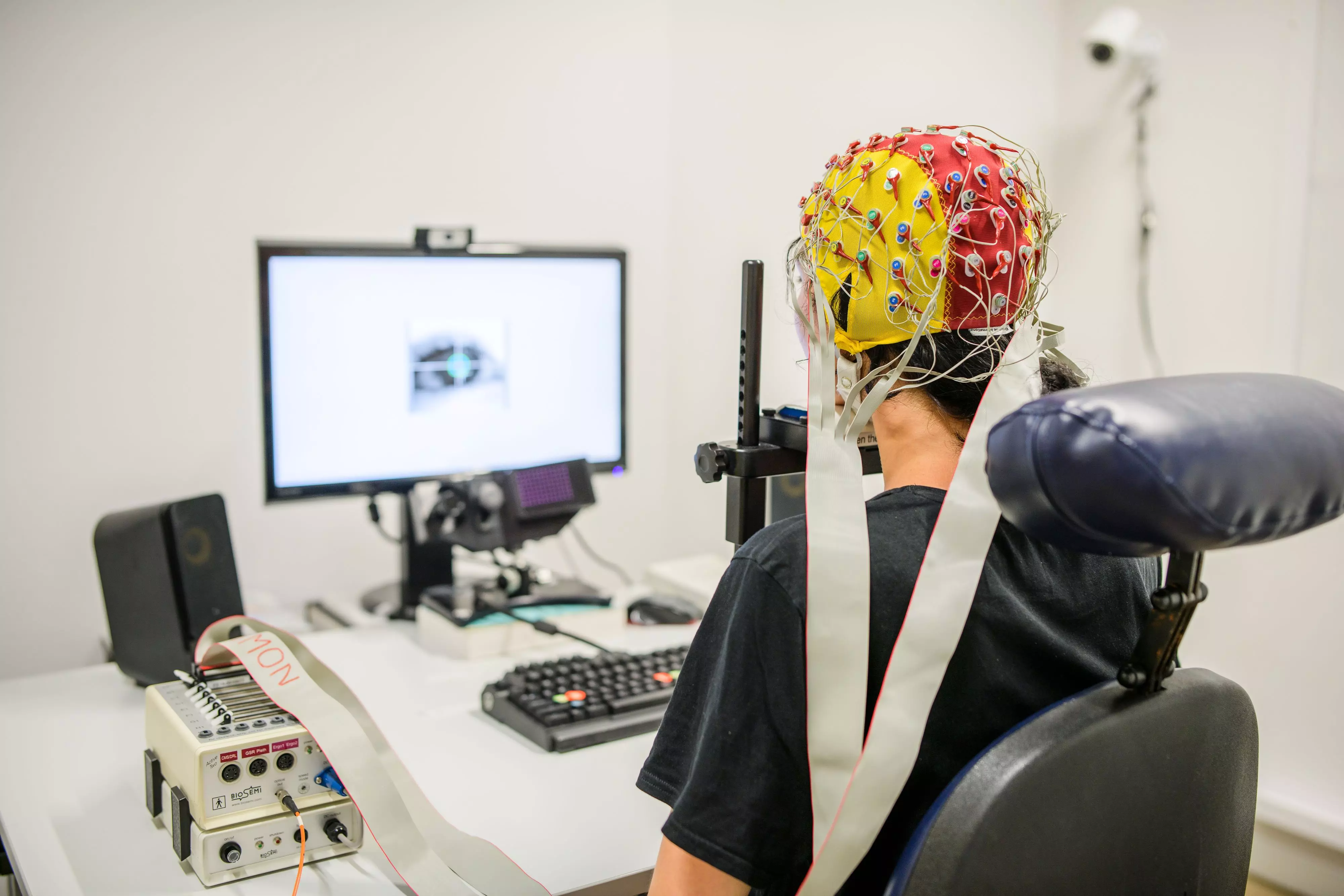
Postdoctoral Fellowship Position on Geometric Deep Learning for Late-Stage Drug Discovery
- Faculty of Science
- 13606
- PhD
- €3.345 - €5.278
- 38 hours
- Closes on03-01-2025

Postdoctoral Fellowship Position on Geometric Deep Learning for Late-Stage Drug Discovery
- Faculty of Science
- 13606
- PhD
- €3.345 - €5.278
- 38 hours
- Closes on03-01-2025
Working at the UvA
Come work at the largest university of the Netherlands!
Endothelial cell dysfunction, a key factor in cardiovascular diseases, disrupts vascular immunity and leads to severe health issues, including atherosclerosis, rheumatoid arthritis, and complications from infections such as Covid-19. This project is focused on optimizing drug candidates through so-called late-stage drug functionalization, i.e. by introducing or substituting chemical groups. The aim is to apply and further develop the latest geometric learning technologies for recognizing and predicting functionalization possibilities to discover new potential drugs for vascular diseases.
The Ensing group develops molecular simulation and machine learning techniques to understand molecular behavior and design molecules and materials with desired properties. In this research project, you will develop and apply geometric learning, generative AI, and reinforcement learning algorithms to predict molecular properties such as binding energies, sample chemical space, and suggest improved drug molecules to our experimental collaborators.

Working at the UvA
Come work at the largest university of the Netherlands!
Endothelial cell dysfunction, a key factor in cardiovascular diseases, disrupts vascular immunity and leads to severe health issues, including atherosclerosis, rheumatoid arthritis, and complications from infections such as Covid-19. This project is focused on optimizing drug candidates through so-called late-stage drug functionalization, i.e. by introducing or substituting chemical groups. The aim is to apply and further develop the latest geometric learning technologies for recognizing and predicting functionalization possibilities to discover new potential drugs for vascular diseases.
The Ensing group develops molecular simulation and machine learning techniques to understand molecular behavior and design molecules and materials with desired properties. In this research project, you will develop and apply geometric learning, generative AI, and reinforcement learning algorithms to predict molecular properties such as binding energies, sample chemical space, and suggest improved drug molecules to our experimental collaborators.
All about this vacancy
What are you going to do
- You will develop graph neural network models for structure-property prediction, in particular for predicting reactive sites and synthetic accessibility of organic (drug) molecules;
- You will work with generative AI, such as denoising diffusion and flow matching to generate modifications on existing drug scaffolds.
- You will develop a computational framework to optimize drug-binding of molecules from docking calculations and/or enhanced molecular simulations in a closed-loop fashion using Bayesian optimization or reinforcement learning techniques.
- You will work in close collaboration with colleagues in the Computational Chemistry group at HIMS, the AI4Science Laboratory at IvI, and in experimental groups at HIMS and the Medical Center.
What we ask of you
You have/are:
- You have a creative, curious and driven nature;
- You have a recent PhD degree in artificial intelligence with a specialization in natural science or in science, preferably in pharmaceutical science, chemistry, chemical engineering, physics, engineering physics.
- Experience with geometric machine learning and/or molecular simulation is preferred;
- You have good programming skills;
- You have excellent communication skills in oral and written English;
- You have strong initiative and good time management skills.
What we offer you
We offer a temporary contract for 38 hours per week for the duration of 12 months. The gross monthly salary, based on 38 hours per week and dependent on relevant experience, ranges between € 3,345 - € 5,278 (scale 10). This does not include 8% holiday allowance and 8,3% year-end allowance. The UFO profile Researcher 4 is applicable. A favourable tax agreement, the ‘30% ruling’, may apply to non-Dutch applicants. The Collective Labour Agreement of Dutch Universities is applicable.
Besides the salary and a vibrant and challenging environment at Science Park we offer you multiple fringe benefits:
- 232 holiday hours per year (based on fulltime) and extra holidays between Christmas and 1 January;
- multiple courses on topics such as leadership for academic staff;
- multiple courses on topics such as time management, handling stress and an online learning platform with 100+ different courses;
- 7 weeks birth leave (partner leave) with 100% salary;
- partly paid parental leave;
- a pension at ABP for which UvA pays two third part of the contribution;
- the possibility to follow courses to learn Dutch.
All about this vacancy
What are you going to do
- You will develop graph neural network models for structure-property prediction, in particular for predicting reactive sites and synthetic accessibility of organic (drug) molecules;
- You will work with generative AI, such as denoising diffusion and flow matching to generate modifications on existing drug scaffolds.
- You will develop a computational framework to optimize drug-binding of molecules from docking calculations and/or enhanced molecular simulations in a closed-loop fashion using Bayesian optimization or reinforcement learning techniques.
- You will work in close collaboration with colleagues in the Computational Chemistry group at HIMS, the AI4Science Laboratory at IvI, and in experimental groups at HIMS and the Medical Center.
What we ask of you
You have/are:
- You have a creative, curious and driven nature;
- You have a recent PhD degree in artificial intelligence with a specialization in natural science or in science, preferably in pharmaceutical science, chemistry, chemical engineering, physics, engineering physics.
- Experience with geometric machine learning and/or molecular simulation is preferred;
- You have good programming skills;
- You have excellent communication skills in oral and written English;
- You have strong initiative and good time management skills.
What we offer you
We offer a temporary contract for 38 hours per week for the duration of 12 months. The gross monthly salary, based on 38 hours per week and dependent on relevant experience, ranges between € 3,345 - € 5,278 (scale 10). This does not include 8% holiday allowance and 8,3% year-end allowance. The UFO profile Researcher 4 is applicable. A favourable tax agreement, the ‘30% ruling’, may apply to non-Dutch applicants. The Collective Labour Agreement of Dutch Universities is applicable.
Besides the salary and a vibrant and challenging environment at Science Park we offer you multiple fringe benefits:
- 232 holiday hours per year (based on fulltime) and extra holidays between Christmas and 1 January;
- multiple courses on topics such as leadership for academic staff;
- multiple courses on topics such as time management, handling stress and an online learning platform with 100+ different courses;
- 7 weeks birth leave (partner leave) with 100% salary;
- partly paid parental leave;
- a pension at ABP for which UvA pays two third part of the contribution;
- the possibility to follow courses to learn Dutch.
Your place at the UvA
Where you will work
The Computational Chemistry Group is one of the research groups within the Van 't Hoff Institute for Molecular Sciences at the University of Amsterdam. Our research focuses on the development and application of advanced molecular simulation and multiscale modelling methodology to obtain novel and improved understanding of the behaviour of (bio)materials, and of complex (bio)chemical and physical processes that are of technological and scientific importance.
The Van ‘t Hoff Institute for Molecular Sciences (HIMS) is one of eight institutes of the University of Amsterdam (UvA) Faculty of Science. HIMS performs internationally recognized chemistry and molecular research, curiosity driven as well as application driven. This is done in close cooperation with the chemical, flavor & food, medical and high-tech industries. Research is organized into four themes: Analytical Chemistry, Computational Chemistry, Synthesis & Catalysis and Molecular Photonics.
The mission of the Informatics Institute (IvI) is to perform curiosity-driven and use-inspired fundamental research in Computer Science. The main research themes are Artificial Intelligence, Computational Science and Systems and Network Engineering. Our research involves complex information systems at large, with a focus on collaborative, data driven, computational and intelligent systems, all with a strong interactive component.
The Faculty of Science has a student body of around 8,000, as well as 1,800 members of staff working in education, research or support services. Researchers and students at the Faculty of Science are fascinated by every aspect of how the world works, be it elementary particles, the birth of the universe or the functioning of the brain.
Organisational unit
Your place at the UvA
This is where you will be working
Where you will work
The Computational Chemistry Group is one of the research groups within the Van 't Hoff Institute for Molecular Sciences at the University of Amsterdam. Our research focuses on the development and application of advanced molecular simulation and multiscale modelling methodology to obtain novel and improved understanding of the behaviour of (bio)materials, and of complex (bio)chemical and physical processes that are of technological and scientific importance.
The Van ‘t Hoff Institute for Molecular Sciences (HIMS) is one of eight institutes of the University of Amsterdam (UvA) Faculty of Science. HIMS performs internationally recognized chemistry and molecular research, curiosity driven as well as application driven. This is done in close cooperation with the chemical, flavor & food, medical and high-tech industries. Research is organized into four themes: Analytical Chemistry, Computational Chemistry, Synthesis & Catalysis and Molecular Photonics.
The mission of the Informatics Institute (IvI) is to perform curiosity-driven and use-inspired fundamental research in Computer Science. The main research themes are Artificial Intelligence, Computational Science and Systems and Network Engineering. Our research involves complex information systems at large, with a focus on collaborative, data driven, computational and intelligent systems, all with a strong interactive component.
The Faculty of Science has a student body of around 8,000, as well as 1,800 members of staff working in education, research or support services. Researchers and students at the Faculty of Science are fascinated by every aspect of how the world works, be it elementary particles, the birth of the universe or the functioning of the brain.
Organisational unit
Important to know
Your application & contact
If you feel the profile fits you, and you are interested in the job, we look forward to receiving your application. You can apply online via the button below. We accept applications until and including 31 December 2024.
Applications should include the following information (all files besides your cv should be submitted in one single pdf file):
- a detailed CV including the months (not just years) when referring to your education and work experience;
- a 1-page letter of motivation;
- Contact details of two academic referees (who will be contacted when shortlisted)
Only complete applications received within the response period via the link below will be considered. The interviews will be held in January 2025. A knowledge security check can be part of the selection procedure (for details: national knowledge security guidelines).
Do you have any questions or do you require additional information? Please contact:
- Dr. B. Ensing, associate professor of Computational Chemistry and director of the AI4Science Laboratory
- Email: [email protected]
Diversity, Equity & Inclusion
Important to know
Your application & contact
If you feel the profile fits you, and you are interested in the job, we look forward to receiving your application. You can apply online via the button below. We accept applications until and including 31 December 2024.
Applications should include the following information (all files besides your cv should be submitted in one single pdf file):
- a detailed CV including the months (not just years) when referring to your education and work experience;
- a 1-page letter of motivation;
- Contact details of two academic referees (who will be contacted when shortlisted)
Only complete applications received within the response period via the link below will be considered. The interviews will be held in January 2025. A knowledge security check can be part of the selection procedure (for details: national knowledge security guidelines).
Do you have any questions or do you require additional information? Please contact:
- Dr. B. Ensing, associate professor of Computational Chemistry and director of the AI4Science Laboratory
- Email: [email protected]
Other interesting vacancies for you

Postdoc in Digital Media: Understanding Media Dynamics of Distrust
- Faculty of Humanities
- €3.345 - €5.278
- PhD
- Closes on12-01-2025

Postdoc in Conquering Therapy Resistance in Multiple Myeloma using Advanced Computational Tools
- Faculty of Science
- €3.378 - €5.331
- Closes on20-01-2025
- PhD
- 38 hours

Postdoc in Modeling of Seasonal Host-parasite Dynamics
- Faculty of Science
- €3.378 - €5.331
- Closes on31-01-2025
- PhD
- 38 hours
Other interesting vacancies for you

Postdoc in Digital Media: Understanding Media Dynamics of Distrust
- Faculty of Humanities
- €3.345 - €5.278
- PhD
- Closes on12-01-2025

Postdoc in Conquering Therapy Resistance in Multiple Myeloma using Advanced Computational Tools
- Faculty of Science
- €3.378 - €5.331
- Closes on20-01-2025
- PhD
- 38 hours

Postdoc in Modeling of Seasonal Host-parasite Dynamics
- Faculty of Science
- €3.378 - €5.331
- Closes on31-01-2025
- PhD
- 38 hours

Don't miss out on your dream job!

Don't miss out on your dream job!
This website uses cookies
We, and third parties, use cookies on our website. We use cookies to ensure that our website functions properly, to store your preferences, to gain insight into visitor behavior, but also for marketing and social media purposes (showing personalized advertisements). By clicking 'Accept', you agree to the use of all cookies. In our Cookie Statement. you can read more about the cookies we use and save or change your preferences. By clicking 'Refuse' you only agree to the use of functional cookies.
